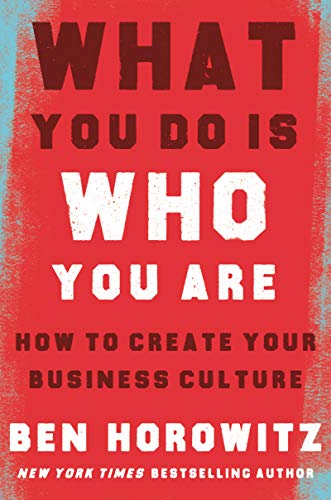What You Do Is Who You Are: How to Create Your Business Culture Link to heading
Author: Ben Horowitz
Summary Link to heading
“What You Do Is Who You Are” explores the critical role culture plays in the success of organizations. Ben Horowitz delves into historical and contemporary case studies, including stories of slave rebellion leader Toussaint Louverture, Samurai warrior culture, and the Haitian Revolution, to illustrate how leaders shape cultural values. The book emphasizes that organizational culture is not an abstract corporate buzzword but a tangible framework that dictates how a company acts in both ordinary and extraordinary circumstances. Horowitz argues that culture is defined by actions and behaviors, not intentions or slogans, and offers a blueprint for leaders to cultivate an effective and authentic culture within their organizations.
Review Link to heading
Ben Horowitz’s book is a compelling analysis of organizational culture, enriched with historical parallels and diverse examples. One of its strengths is Horowitz’s ability to distill complex historical tales into accessible lessons that apply to modern business contexts. Critics, however, might argue that certain case studies, while intriguing, seem distant from the challenges faced by contemporary businesses, potentially leaving readers struggling to connect the dots without guided application. Despite this, Horowitz’s engaging writing style and thorough research make it a valuable read.
Key Takeaways Link to heading
- Culture is Action-Based: An organization’s culture is established and communicated through the actions and behaviors of its leaders and employees.
- Storytelling as a Cultural Tool: Historical and cultural narratives can guide modern organizational practices and serve as exemplary models for leadership.
- Leadership Defines Culture: Leaders must personify the cultural attributes they wish to instill within their teams; their actions have the power to inspire or undermine the desired culture.
- Adaptability and Consistency: Building a strong culture involves balancing adaptability with consistent principles and values.
- Managing Cultural Dissonance: Addressing and aligning cultural differences is essential for coherent leadership and organizational function.
Recommendation Link to heading
“What You Do Is Who You Are” is well-suited for business leaders, entrepreneurs, human resource professionals, and anyone interested in organizational development. The book provides practical insights into building and maintaining an authentic and effective business culture, through engaging narratives. Readers who appreciate historical analogies and real-world applications of leadership theories will benefit from Horowitz’s skilled storytelling and strategic approach to culture-building.
